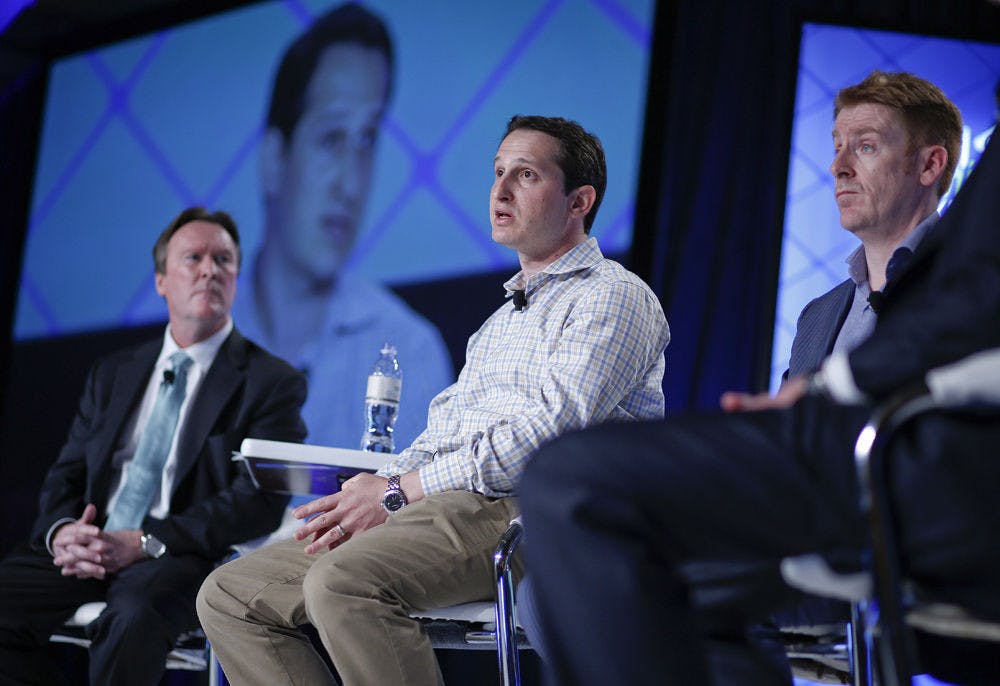It’s ridiculous that daily fantasy sports is legal while sports gambling isn’t.
That last statement is ironic because daily fantasy sports IS sports gambling.
Earlier this month, a scandal involving DraftKings, a daily fantasy sports website, dominated headlines, as a DraftKings employee won $350,000 on his employer’s rival website, FanDuel.
This created a huge uproar because some thought the employee may have had inside information from the exclusive DraftKings data and used it to his benefit on FanDuel.
Since then, the Nevada Gaming Control Board has ruled that daily fantasy is gambling and will require a license to continue operating in Nevada.
People wager money on how well athletes will play in a competitive game.
It’s the same as betting on any kind of professional or college game. Sports gambling should be legalized, licensed and regulated in every state.
It already happens everywhere.
And ESPN is promoting gambling like never before.
On the new midnight SportsCenter, hosted by Scott Van Pelt, a segment called "Winner$" involves Van Pelt picking five football games that weekend with the point spread included.
Then, on Monday, he does a "Bad Beats" segment that highlights the unluckiest betting losses of the weekend.
ESPN even bills employee David Purdum as a "gambling reporter".
Flip on ESPN, and in the span of an hour you are likely to see a daily fantasy expert picking football games against the spread.
Matthew Berry has transitioned from a "fantasy expert" to an anchor who offers corporate-sponsored opinions on daily fantasy plays.
His Twitter can even be seen promoting DraftKings on a regular basis.
Daily fantasy has twisted the most notable fantasy expert in the world into a spokesperson for gambling.
If you watched SportsCenter and didn’t know any better, you would think that sports gambling is legal everywhere.
Even here at alligatorSports we have a picks column every Friday with games picked against the spread (which I was inexplicably not invited to participate in).
On October 28, 1992, the Professional and Amateur Sports Protection Act was enacted to outlaw people from betting on professional and collegiate athletics.
Meanwhile, the American Gaming Association estimates that as much as $380 billion is wagered illegally in the U.S. annually as there are countless amounts of online betting sites that make that number staggeringly high and on the rise.
Given how commonplace sports gambling is despite it being illegal, it would make sense for the government to legalize it, tax it and use the revenue for whatever purpose it sees fit rather than criminalizing it with laws that are clearly ineffective.
Professional sports leagues and the NCAA benefit immensely from sports gambling, so why can’t the government?
"It’s good for business, I don’t want to hide from that," said NBA commissioner Adam Silver, who has been an outspoken proponent of legalizing sports gambling.
"We all know as fans if you have, even like a gentleman’s bet or a $5 bet with your friend on a game, all of a sudden you’re a lot more interested," he added.
Every league would benefit from this in terms of money and popularity.
We have the commissioner of the NBA pushing for the legalization of gambling.
ESPN continually parades gambling all over its platforms.
Daily fantasy sports are legal for in the majority of the U.S.
Hopefully these baby steps signal the legalization of sports gambling in the near future.
Follow Andrew Jurnovoy on Twitter @andrewjurnee10
Jason Robins, center, CEO of DraftKings, speaks on a panel at the Global Gaming Expo in Las Vegas.






